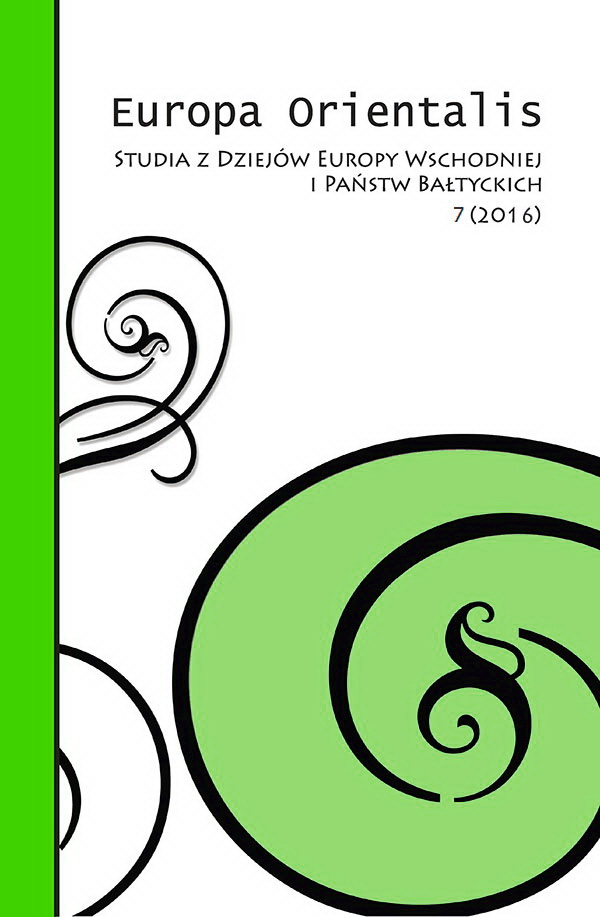Rozważania nad kwestią tradycji skrajnie nacjonalistycznych ruchów w polityce historycznej współczesnej Ukrainy. Zarys problematyki
DOI:
https://doi.org/10.12775/13653Abstrakt
Reflections on the problem of the tradition of extreme nationalist movements in historical policy of modern Ukraine. Outline.
The article focuses on the emergence of extreme nationalist political movements in modernUkraine. The growth of political parties referring to Neo-Nazi tradition, with the “Svoboda” party serving as a glaring example, has been outlined. The author recalls that Organization of Ukrainian Nationalists (OUN) is recognized a fascist party by many scholars occupied with the history of Ukrainian nationalist movement inUSA,Canada, Western Europe, andPoland. Then the way to heroisation of the same in modernUkraineis discussed, from the appointment, in 1997, of a historians committee summoned to investigate the history of the Ukrainian Insurgent Army (UPA) to still increasing activities of such political circles. The article also gives an overview of international reactions to such events and discusses the problem of political history conducted inUkraine.
Particularly during the presidency of Victor Yuschenko, falling for the years 2005-2010, the authorities decided to make tradition and activities of Ukrainian nationalist groups one of main domains of the national historical policy. The article discusses the advances aimed at serving this purpose and the resulting reactions of the international public opinion that is astonished and outraged with the growing influence inUkraineof circles which refer to traditions of organizations which in WWII openly collaborated with the Third Reich and took an active part in the Holocaust. The celebrations of subsequent anniversaries of the formation of 14 SS “Galizien” Division are recalled. Legal decisions have also been discussed such as the introduction, on 9 April 2015, of the ban to criticize organizations recognized as questing for independence (including OUN and UPA) and the legal prohibition of criticism. In this wayUkrainestarted to implement preventive censorship, the fact which gave rise to protests of Western scholars (from theUSA,Canada, andWestern Europe) who wrote an open letter to President Petro Poroschenko and the Chairman of the Ukrainian Parliament (Supreme Council), Volodymyr Groysman. Other pronouncements of Western scholars against current practices inUkraineare also discussed.
The article also includes an extensive discussion of the issues related to extermination of Poles in Volhynia by UPA during WWII and the participation of nationalist circles in the Holocaust. The article also outlines the problems related to commemoration of these events inPolandand other countries and the attempts to have them forgotten or even to falsify the history of the same by the present Ukrainian authorities. The article ends with an attempt to discuss the effect of the Ukrainian historic policy on the international position ofUkraine. The author points out that numerous publications in the West (e.g. in the prestigious American journal ”Foreign Policy”) express doubts as to the possibility of offering further international support to Ukraine and her possible membership in the European Union and NATO as the country referring to Neo-Nazi tradition of political parties and cooperation with the Third Reich.
Pobrania
Opublikowane
Jak cytować
Numer
Dział
Statystyki
Liczba wyświetleń i pobrań: 3796
Liczba cytowań: 0



